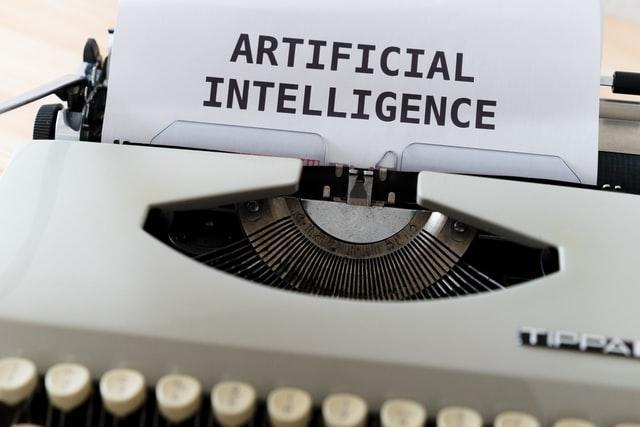
At no point in history has there been as much data in existence as today. This data is extremely useful to businesses because it can be used to predict trends, improve product and service offerings and attract more clients. However, due to the sheer volume, a new way of analyzing and using the data is required if businesses are to extract the maximum value from the data that they have available.
It was soon realized that AI or artificial intelligence is the perfect tool for the job. Whether it is in the form of a chatbot or an autonomous vehicle, artificial intelligence is quickly becoming indispensable to businesses big and small. In this article, we will be taking a closer look at how artificial intelligence and business analytics can be used to foster growth.
What Exactly is AI?
In simple terms, artificial intelligence refers to the act of applying certain human or intelligent characteristics to computer systems. The goal is to create computer systems that can analyze data and learn, much in the same way that a human being would be able to. By using artificial intelligence, computer systems can be programmed to perform automated actions based on complex data analysis that would otherwise only be possible with human intervention.
How is AI Used in Business?
The applications for artificial intelligence in business are virtually unlimited and more possibilities are being uncovered constantly. A typical example of AI being used in a business is a chatbot. Because chatbots can “understand” natural language, they can be used to interact with human customers.
This characteristic is particularly useful in settings like call centers where chatbots can be employed to answer frequently asked questions and provide customers with assistance without the need for a human employee. Artificial intelligence allows employees, which are expensive for the business, to focus on complicated tasks that cannot be performed using AI, which ultimately results in cost-savings for the business. Artificial intelligence is particularly adept at performing repetitive tasks and does not get bored as humans do, which is another compelling reason for businesses to invest in the technology.
AI and Data Analysis
Artificial intelligence also offers powerful data analytics possibilities which can be applied in a myriad of ways. This is often referred to as business intelligence (BI) and can be used by enterprises to gain a better insight into the activities and preferences of their customers. Some of the business areas in which business intelligence can be applied include:
Customer Relationship Management
Business intelligence is often employed to analyze customer behavior with the purpose of identifying trends and patterns in the way a customer interacts with a business. Based on the information gathered from this, artificial intelligence can then be used to automate tasks like sending marketing e-mails to customers, identifying potential leads, and sending after-sales e-mails.
Marketing
Traditional marketing works by trying to reach as many people as possible and hoping that a few of those people will turn into customers. Business intelligence can be used to refine and target marketing campaigns so that only those potential customers who are statistically most likely to be converted are targeted. This highly targeted marketing strategy can often cost a company less to employ and often yields better results.
Sales
It is a well-known fact that the power of suggestion can be very convincing. Business intelligence can harness that power to suggest items to customers that they might be interested in purchasing. These suggestions are tailored specifically to every customer and are based on their shopping and browsing history, almost like a salesman who has been dealing with a specific customer for years. According to Gartner, most businesses see an increase in the execution of sales when using AI-driven tools to aid them.
Strategic Planning
The advanced data analytics capabilities of AI are a critical tool for every business. Business intelligence has a unique ability to analyze large amounts of data quickly and effectively which means that business leaders always have the right information at their fingertips. Having access to this information makes it possible to guide a business through today’s ever-changing business landscape. This is especially true in large companies where the process of collecting and analyzing data without the use of AI would be nearly impossible.
Is There Still a Place For the Human Business Analyst?
Yes. While machine learning and artificial intelligence have come a long way since it’s inception, it is still not a replacement for human employees. AI systems work very well in repetitive or predictable situations but they are much less reliable in dynamic situations where humans excel. It is most likely that business intelligence and business analysts will continue working side by side to provide executives with the insights needed to manage large organizations.
With Great Power Comes Great Responsibility
Artificial intelligence relies on data to perform its magic and with a staggering 1.145 trillion megabytes of data being created every day, there is no shortage of data to analyze. However, data must be handled with care and in accordance with data protection legislation. Initiatives like the General Data Protection Regulation or GDPR are designed to make sure that companies do not exploit the personal data of consumers for their own benefit and strict penalties are in place for those companies that do cross the line.
Every company that works with data must make sure that they take every reasonable precaution to protect the personal data of their customers and keep it out of the hands of cybercriminals. This is not an easy task and, therefore, there should be a balance between the time and resources spent on introducing new AI or BI technologies and the resources spent on the protection of data.
In Conclusion
Artificial intelligence presents an enormous opportunity for every business and if it is used correctly, it can fuel business growth as few other tools can. That said, it is important to make sure that the technology is used responsibly, and that the privacy of consumers is always taken into consideration when the technology is implemented. AI is a great tool but it is important to remember that it is not a complete substitute for human employees, there are some tasks at which the technology excels but in some areas humans are the better choice. As such AI should be seen as a tool to help employees achieve their goals, not as a replacement for them. SmartOffice, an office automation provider such as document management systems & accounts payable solutions provide these automation solutions to many businesses throughout Ireland and UK.





